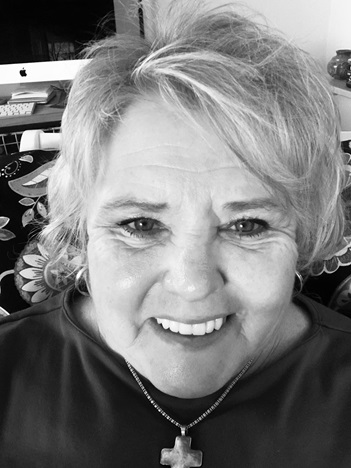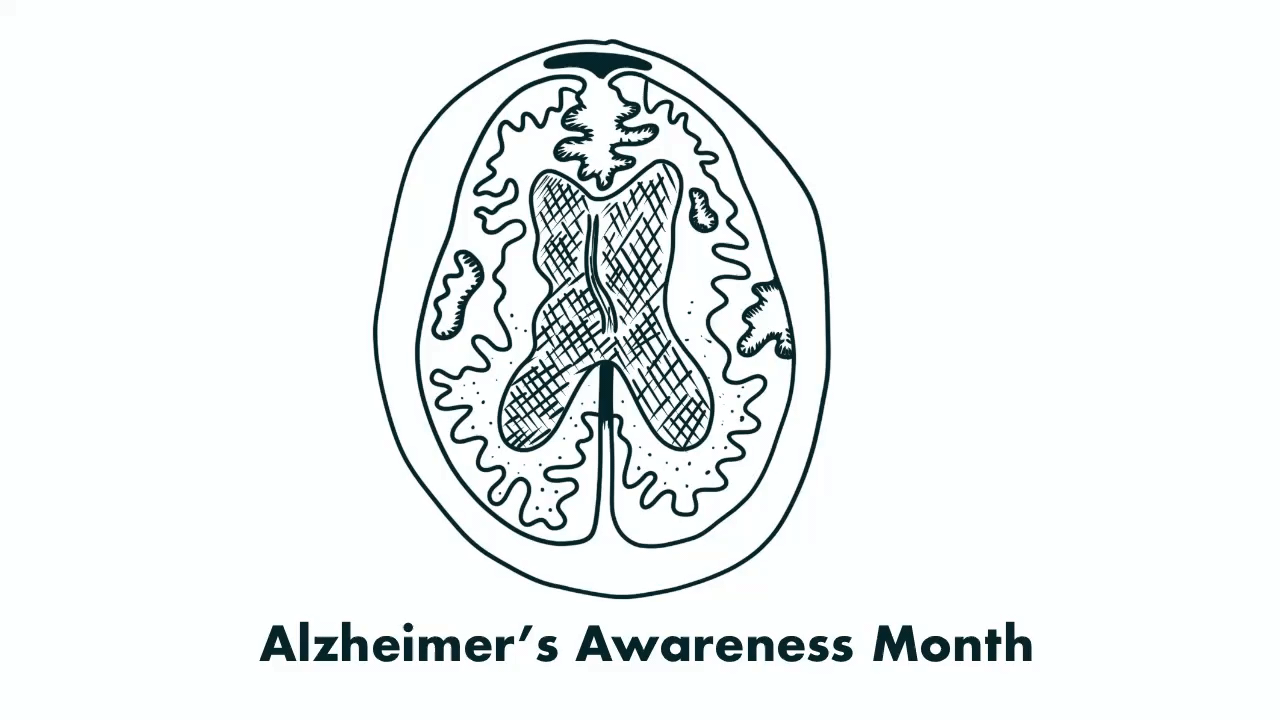January is Alzheimer’s Awareness Month in Canada. At CHASI, much of our work focuses on topics of health and aging. This month we honour persons living with dementia who are advocating for change, reducing stigma, and raising awareness about dementia. One such advocate is Christine Thelker, who has graciously agreed to share her experiences and perspectives.
 At 61 years old, I am over six years into my diagnosis of Vascular Dementia. I don’t normally look like I have dementia, but then again, what does dementia actually look like? Assumptions are based on old beliefs and stereotypes. They’re outdated views that keep being passed down by people who either lack interest or who find it easier to stay with the old than to venture into understanding the actual realities for those of us living with dementia.
At 61 years old, I am over six years into my diagnosis of Vascular Dementia. I don’t normally look like I have dementia, but then again, what does dementia actually look like? Assumptions are based on old beliefs and stereotypes. They’re outdated views that keep being passed down by people who either lack interest or who find it easier to stay with the old than to venture into understanding the actual realities for those of us living with dementia.
People do not generally like to accept change, either in their own lives or in their viewpoints and perspectives. Over the course of history, we see how change has been thrust upon people. People have had to flee their homes and countries during wars. They had to establish a whole new way of life and living. Change was forced on them. People living with dementia have also had change forced on them – a new way of living, from the moment diagnosis is given – they have had to learn to adapt, sometimes on a daily basis. Other times, people with dementia, like myself, stay at a certain level until the next step down in our progression happens, but subtle changes happen constantly. We are always learning new ways to adapt and maintain our day-to-day functions, such as how we cook, how we dress, how we sleep, and how we navigate our day. We learn to focus on the things we can do – even as we adapt how we do them. We become grateful for the small and simple things in our lives, like going for a walk or a drive.
The COVID-19 pandemic has forced change on the world and in many ways it is giving the world a taste of what it is like for those of us living with dementia. We live more isolated. We have been using tools like Zoom to keep us connected for a long time. But there are others who resist the changes that are happening. They are unwilling to forge a new way of doing things. Instead, they focus on what they can’t do anymore, and what has been taken away instead of focusing on all they still have and can still do. Those of us living with dementia become very good at adapting and embracing the changes. If we don’t, our illness would be unbearable. We are a happy lot because we have chosen to be happy, to find joy in the simple things, to laugh at our own blunders as we discover yet another thing that we used to do with ease that now requires more thought and improvising.
We have been blessed here in B.C. with a lovely winter thus far, which allows us to be outdoors, walking and enjoying. We can go for drives with our families (or in my case, with my dog) or we can sit home and resist the changes our lives are facing. It oddly enough makes me look at how grateful I am for all that my dementia has given me instead of taken away. I have already learned to live in the manner that the rest of you are now being asked to, so although I feel deeply for all in the world affected by this pandemic, I believe there are lessons here for us all. Because I live alone, I have been isolated for a very long, extended period of time. I have learned through the challenges of my dementia to keep it in perspective and to manage what I can and let go of the rest. I use this time to be reflective, to do hobbies, and to get creative.
 Another thing that has happened is that our advocacy work has changed. We have to be more creative in these times, just like everyone else. Research groups and many academics struggled to switch to online meetings, but soon realized we could effectively get a lot of work done this way. But what many of those people who normally work a full day did not take into consideration was the toll this may have on those of us with dementia. We are working more and more, trying to help in many different arenas within the dementia world. And we are a group of people who push because we so strongly believe in our advocacy work. The toll is that we are left exhausted. Our brains are exhausted. We are struggling to keep up. We don’t have to ability to put in fulltime hours and it takes us at least twice as long to do what most of you do in a day. Most of us don’t have the help, either paid or volunteer. Most of us cannot afford to pay anyone to help us, because we live on disability and our advocacy work is unpaid. Yet without those living with dementia taking on advocacy work and putting themselves out there, being vulnerable, using their voices, there is no hope of things ever changing.
Another thing that has happened is that our advocacy work has changed. We have to be more creative in these times, just like everyone else. Research groups and many academics struggled to switch to online meetings, but soon realized we could effectively get a lot of work done this way. But what many of those people who normally work a full day did not take into consideration was the toll this may have on those of us with dementia. We are working more and more, trying to help in many different arenas within the dementia world. And we are a group of people who push because we so strongly believe in our advocacy work. The toll is that we are left exhausted. Our brains are exhausted. We are struggling to keep up. We don’t have to ability to put in fulltime hours and it takes us at least twice as long to do what most of you do in a day. Most of us don’t have the help, either paid or volunteer. Most of us cannot afford to pay anyone to help us, because we live on disability and our advocacy work is unpaid. Yet without those living with dementia taking on advocacy work and putting themselves out there, being vulnerable, using their voices, there is no hope of things ever changing.
It often still amazes me, makes me sit back and ponder, why after 25 or 30 years so very little has changed with dementia. We still fight to change the stigma, the stereotyping, and to have academic programs include current and relevant information on living with dementia. It is strange to me that we are still so focused on a cure instead of shifting the focus to helping people live with their dementia while we look for a cure. We put effort and work into helping care partners and caregivers who help those of us who live with dementia, and they are deserve it all, but we need to ensure we aren’t neglecting the actual person living with the illness. We don’t do that with any other illness, and we should not do it to those of us living with dementia. We need to keep a sharp focus on having the academic world shift how and what these programs look like. Dementia often gets the least attention in program development. We need to make sure that those who work in the field of dementia research are aware of all the new science surrounding the nutritional and exercise component of helping people live well for longer with dementia and how those factors, along with a vast array of therapies, can enable people to stay at home and live independently for a longer period of time.
I look forward to the day when my advocating finally sees some real change, and until then I will keep fighting. After all, if I don’t then who will?
Christine Thelker
Author of For This I Am Grateful: Living with Dementia. Available at amazon.ca, Indigo/Chapters and from the publishers, Austin Macauley New York
Board member Dementia Alliance International
International Advocate and Speaker
For more from Christine, visit her blog: chrissysjourney.com
Animation by Celina Koops, as part of CHASI’s ongoing series acknowledging some of the significant annual observances that align with our core values.

